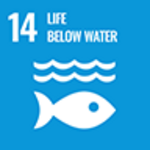
 The richness of marine ecosystems, the abundance of organisms from phytoplankton to zooplankton to pinnipeds and killer whales, is in constant flux. The purpose of this project is to elucidate how it has changed over the past 7,000 years. As a method, we use isotope analysis and DNA analysis of the bones of northern fur seals, Japanese sea lions, and Pacific cod excavated from archaeological sites. No study in the western part of the North Pacific has revealed the history of a particular species over such a long period of time. In addition, it has become clear that the residents of Hokkaido Island have been highly dependent on marine resources for the past 7,000 years, so the decrease in marine products is considered to be a matter of life and death. Another purpose of this project is to consider how the decline in marine productivity has affected humankind. In the future, it is expected that useful information will be obtained for improving the use of marine resources.
The richness of marine ecosystems, the abundance of organisms from phytoplankton to zooplankton to pinnipeds and killer whales, is in constant flux. The purpose of this project is to elucidate how it has changed over the past 7,000 years. As a method, we use isotope analysis and DNA analysis of the bones of northern fur seals, Japanese sea lions, and Pacific cod excavated from archaeological sites. No study in the western part of the North Pacific has revealed the history of a particular species over such a long period of time. In addition, it has become clear that the residents of Hokkaido Island have been highly dependent on marine resources for the past 7,000 years, so the decrease in marine products is considered to be a matter of life and death. Another purpose of this project is to consider how the decline in marine productivity has affected humankind. In the future, it is expected that useful information will be obtained for improving the use of marine resources.
Related research grants
Katsunori Takase (Associate Professor, Department of Archeology Faculty of Humanities and Human Sciences Hokkaido University)
"Long-term Changes in Marine Productivity in Hokkaido and Their Impacts on Humankind"























